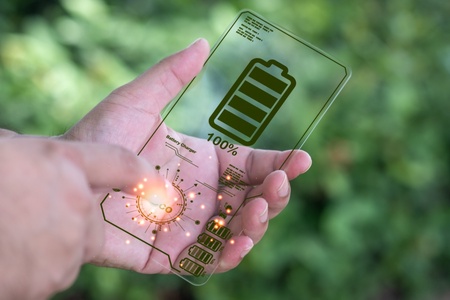Researchers are leading a project that aims to develop a new method of recycling critical elements from electronic devices, reducing waste and ensuring a new lease of life for old smartphone and vehicle batteries along with other rare elements.
Academics at the University of Aberdeen’s Department of Chemistry have received a £140,000 award from the AXA Research Fund for the project, which seeks to develop a sustainable electrochemical recycling route by investigating the potential use of neoteric (green) solvents.
Combined with the use of a flow electrochemical cell that will be designed and engineered to extract the elements, the aim is to make separation and recovery of critical and rare earth elements efficient, safer, and cleaner – allowing for the creation of a sustainable recycling route.
If successful, it could have a significant impact in reducing electrical and electronic equipment waste.
According to a 2019 UN report, the world produces as much as 50 million tonnes of electronic and electrical waste a year, but only 20% of this is recycled.
Dr Haytham Hussein from the University’s Department of Chemistry is leading the project.
He said: “Critical and rare raw elements are essential in our modern society, powering industry, homes and our personal devices but this has resulted in the rapid and unsustainable growth in electrical and electronic equipment waste.
“Global accessibility to these vital resources poses a significant challenge due to their rapidly increasing demand and ever-decreasing supply, but the international use of critical resources is expected to continue surging.
“This means that it is essential to discover and develop efficient recovery methods of elements from waste to enable the transition to a sustainable circular economy.
“This will reduce waste and it could also reduce demand for these elements from countries where child labour is used in the mining industry.”
Dr Hussein added: “Our two-year project aims to develop a sustainable recycling route for elements recovery from batteries and electronic waste for further reuse, utilising tailored green solvents and an innovative experimental approach based on a flow electrochemical cell and electrically conductive synthetic diamond.
“If proven, it has the potential for commercialisation and the creation of a valuable, secondary raw stream for urban mining and recycling that could play a significant role in the sustainable economy.”


